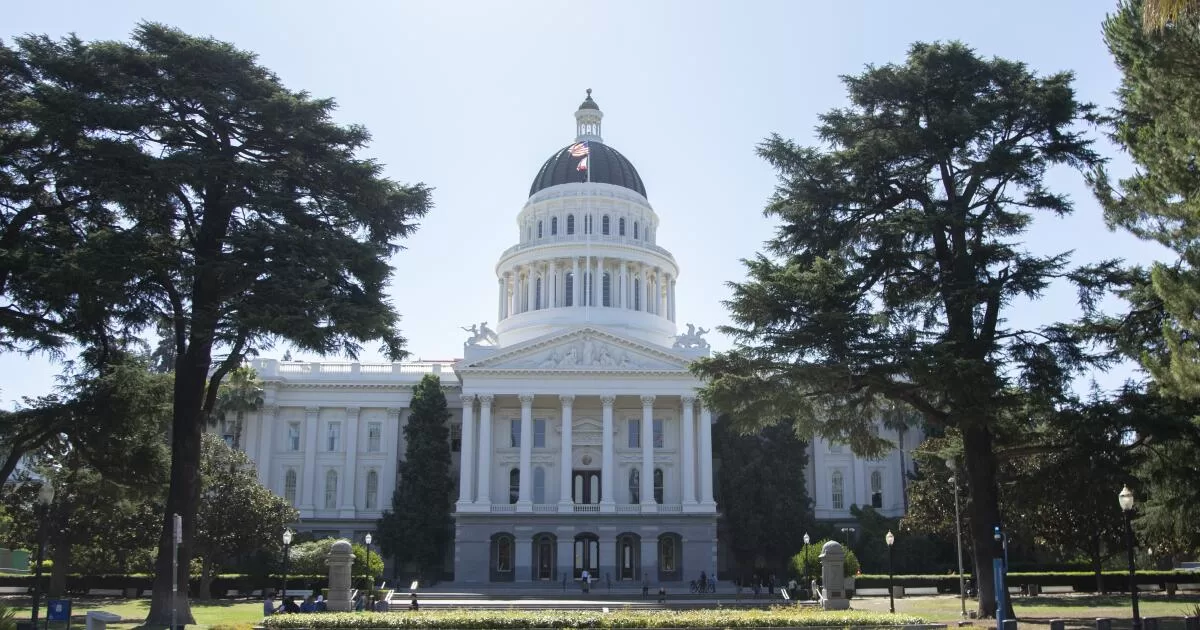Signed by Gov. Gavin Newsom last year, the wide-ranging new laws include sweeping protections for California consumers against hidden “junk” fees that add unexpected costs to everything from concert tickets to food delivery. The laws also tackle issues related to housing affordability, the difficulty of fixing your own iPhone and other electronic devices, and screening measures to detect date-rape drugs in alcoholic drinks at bars and nightclubs.
As in years past, the list mostly reflects the politics and interests of the Democrats who hold a supermajority of seats in the state Assembly and Senate.
Here’s a look at several of the new laws that will take effect Monday.
No more hidden fees
Two new laws will require that businesses including hotels, food delivery apps, airlines and concert venues include all mandatory fees and surcharges in their advertised prices.
The wide-reaching transparency law, Senate Bill 478, will apply to many industries. The charges that must be disclosed upfront to customers include resort fees at hotels, cleaning fees for lodging rental platforms like Airbnb and Vrbo, venue fees for concerts and sporting events, and surcharges for driver benefits and deliveries on apps like DoorDash and Uber Eats.
The bill was sponsored by Sens. Bill Dodd (D-Napa) and Nancy Skinner (D-Berkeley) and backed by Atty. Gen. Rob Bonta.
A second law targets cleaning and resort fees at hotels and short-term rentals. Assembly Bill 537, introduced by Assemblymember Marc Berman (D-Menlo Park), requires that lodgings display the total price before checkout, except any government taxes and fees.
The laws have already led to some national changes, including hotel websites that now display the total price for each stay before taxes, and a “total before taxes” search option on Airbnb.
President Biden last year called out junk fees and backed a bill in Congress that would ban the fees nationally. The Federal Trade Commission has also started drafting regulations that would bar companies from advertising prices without including mandatory fees.
Limits on security deposits
Many California landlords will be barred from charging more than the equivalent of one month’s rent for security deposits. Landlords could previously charge the equivalent of two times the monthly rent for unfurnished units, and three times the monthly rent for furnished units.
Assemblymember Matt Haney (D-San Francisco), who introduced AB 12, said that high security deposits can be a barrier to finding affordable housing, especially in coastal California cities where rents are among the country’s highest.
Mom-and-pop landlords who own up to two rental properties, with no more than four units, are exempt from the law.
Credit card codes for gun retailers
Starting July 1, credit card payment networks must provide a unique identifying code for gun and ammunition retailers. Those four-digit identifiers, known as “merchant category codes,” already appear on credit card statements for most types of businesses, including grocery stores, hotels and gas stations, and help payment networks offer rewards and track spending trends.
Typically, gun and ammunition retailers are categorized as sporting goods stores. Under AB 1587, introduced by Assemblymember Phil Ting (D-San Francisco), credit card payment networks must begin offering the merchant category code for gun and ammunition retailers on July 1. Retailers have until May of next year to integrate the code into their systems.
Ting’s office said the code would allow banks to flag suspicious activity related to gun purchases, akin to the warnings that banks already pass along to law enforcement agencies about purchases potentially linked to terrorist financing, fraud and identity theft.
Date-rape drug testing kits in bars
Bars and nightclubs in California will be required to offer kits that test for controlled substances slipped into drinks.
The law will require bars and clubs to sell (or offer for free) strips, stickers, straws or other devices that test alcoholic drinks for the presence of common date-rape drugs, including ketamine, GHB and flunitrazepam, which is often sold under the brand name Rohypnol.
AB 1013, introduced by Josh Lowenthal (D-Long Beach), will also require bars and clubs to post “in a prominent and conspicuous location” a notice that reads: “Don’t get roofied! Drink spiking drug test kits available here. Ask a staff member for details.”
Tax on guns and ammunition
The sale of many firearms, ammunition and parts used to build guns will incur an 11% excise tax. The revenue from AB 28 will fund gun violence prevention and gang intervention programs in California. The federal government charges an excise tax on guns, but California’s is the first such tax at the state level.
The law, introduced by Assemblymember Jesse Gabriel (D-Encino), will not apply to sales to active and retired police officers and law enforcement agencies, nor to sales by mom-and-pop vendors who reported less than $5,000 in sales in the quarter when the purchase was made.
State budget analysts estimated that the tax would generate $159 million in revenue in the first year. If the excise tax is passed on by vendors to their customers, analysts said, the bill would generate additional sales and use tax revenue of up to $14 million for state and local governments.
Information on how to fix your iPhone
Manufacturers of many electronic devices and appliances will be required to provide the parts, tools and instructions needed to repair their products under a new law aimed at empowering consumers who are interested in fixing their own phones, dishwashers and lawnmowers.
Under SB 244, the Right to Repair Act, manufacturers must make documents, parts and tools available to fix devices that cost $50 to $99 for at least three years after the product was last manufactured. For products that cost more than $100, the time period rises to seven years, regardless of warranty periods.
California is the third U.S. state, after New York and Minnesota, to pass a so-called right-to-repair law.
The law, introduced by state Sen. Susan Talamantes Eggman (D-Stockton), doesn’t apply to video game consoles, fire alarms and heavy machinery used in agriculture, forestry and construction.
